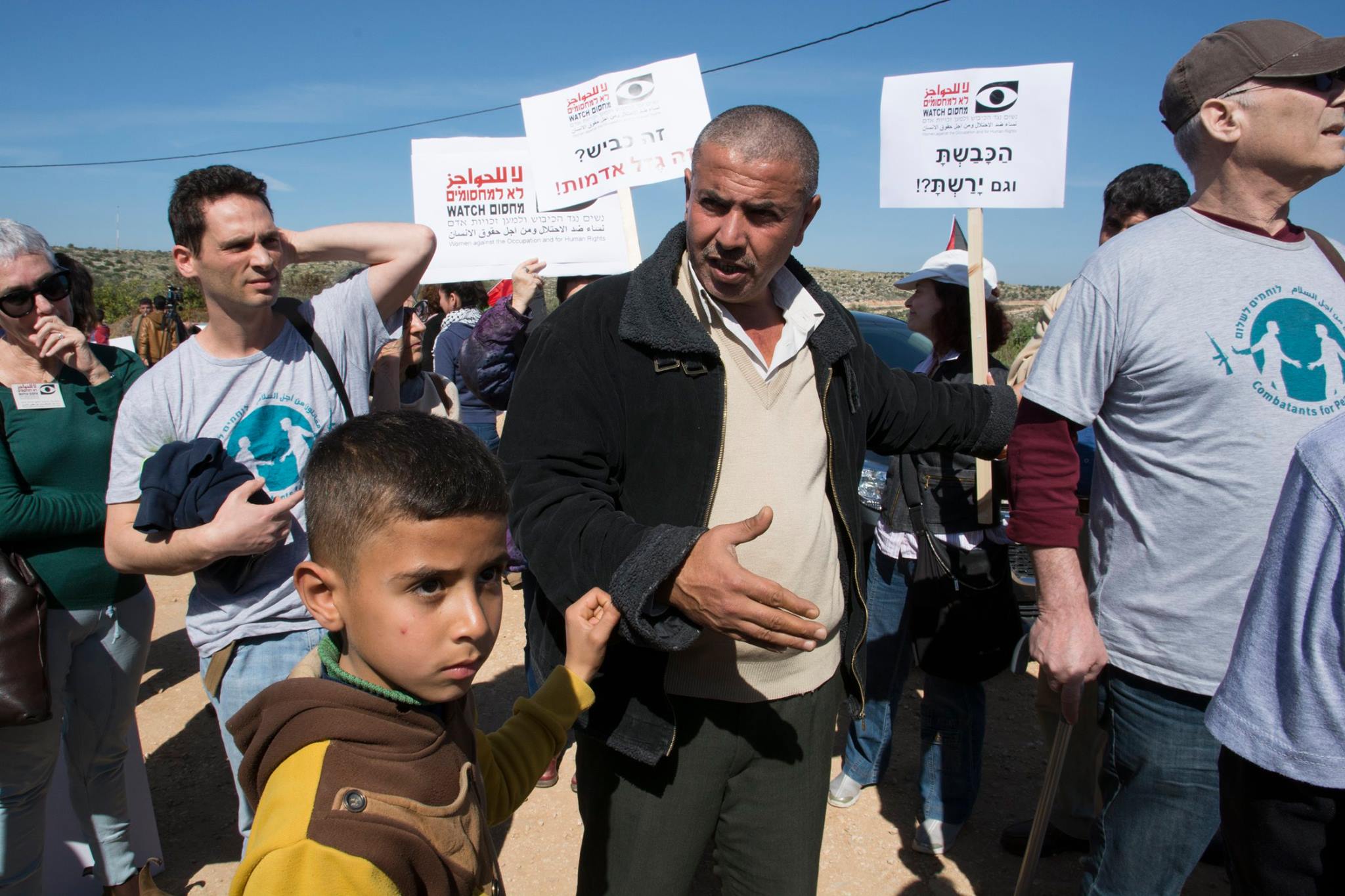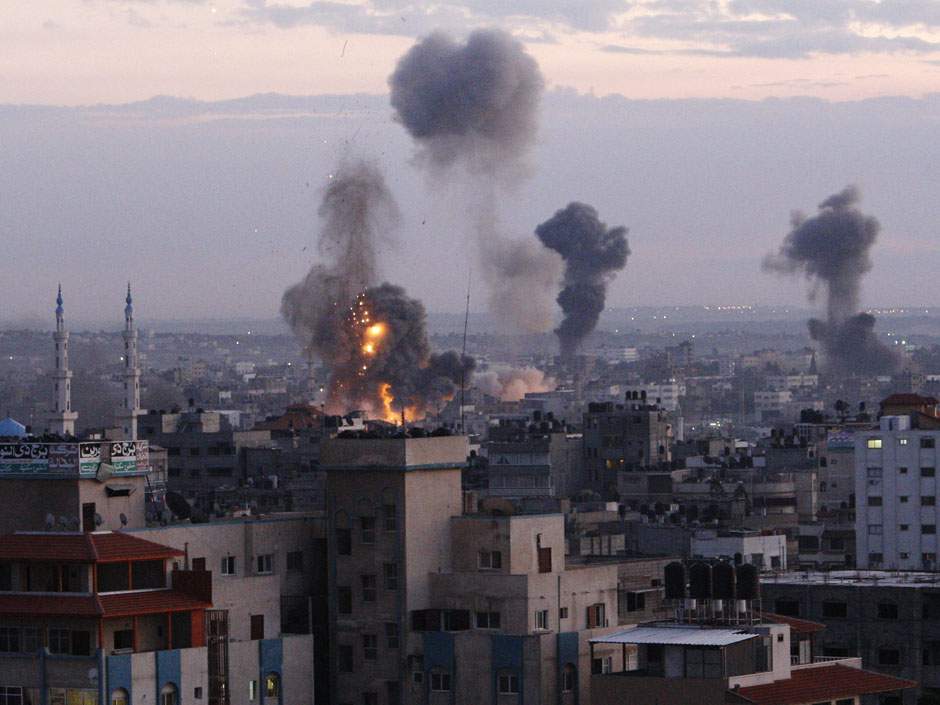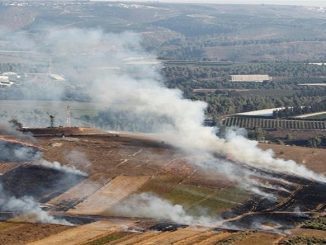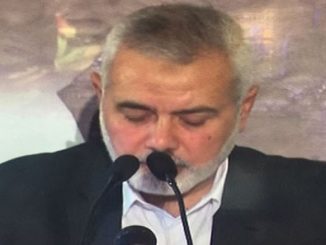
Israel is planning to deport foreign activists involved in promoting an international boycott of Israeli goods, a government minister said Sunday night, Anadolu Agency reported.
The Israeli government announced that it was launching a task force to identify and deport members from the Boycott, Divestment, and Sanctions (BDS) movement, marking the latest attack on left-wing and pro-Palestinian activism by Israel.
Public Security Minister Gilad Erdan issued a call on his Facebook page for Israelis to report anyone they believe has been working as an activist having entered Israel as a tourist.
He said together with Interior Minister Aryeh Deri a decision had been made to set up a taskforce for preventing the entry of pro-boycott activists and deporting those who had entered — who are mostly thought to be active in the occupied West Bank.
Israeli newspaper Haaretz quoted an unnamed government official saying they were concerned about being seen as cracking down on human rights activists and would only deport those who were primarily engaged in promoting a boycott of Israel.
“We must not allow BDS activists to enter to Israel. This is a necessary step, given the malicious intentions of these activists to delegitimize and spread lies and distortions about the reality in our region,” Erdan was quoted as saying in the statement, adding that the boycott movement against Israel “must have a price.”
“Fighting against Israeli boycott starts by fighting those wo undermine the State of Israel,” Deri said. “We have a responsibility to do everything possible to crush any boycott and to state clearly that we will not allow the State of Israel to be harmed. Forming the task force is an important step in that direction.”
Neta Golan, from pro-Palestinian activist group International Solidarity Movement, defended the involvement of international volunteers in “non-violent resistance”.
“We find that our presence sometimes results in reducing the level of lethal force used by the Israeli military against unarmed Palestinians,” Golan said.
“Further isolation of Palestinians by denying access and/or deporting human rights activists will mean that the communities already vulnerable and suffering from abuse will be left even more vulnerable,” she said.
The Boycott, Divestment, Sanctions (BDS) movement was founded by Palestinian organizations and has grown into a global movement advocating for an economic, cultural and academic boycott of Israel until it withdraws from territories occupied in the 1967 Arab-Israeli war.
Much of Israeli foreign policy has been dedicated to countering the campaign’s momentum by requesting foreign governments do not allow such boycotts, especially in public institutions.
This led to a significant, but temporary, fallout with the European Union last year when it passed guidelines stipulating any goods from Israeli settlements in occupied territories must be labeled as such — a move seen by Israel as facilitating the boycott.
Last month, Israeli Prime Minister Benjamin Netanyahu said that his government had “beaten” the global movement to boycott Israeli goods.
In late July, the Black Lives Matter movement — which denounces police violence against African-Americans in the United States — came out in support of BDS, stating that it was committed to “global struggle, solidarity, and support of the Boycott, Divest and Sanction (BDS) movement to fight for freedom, justice and equality for Palestinian people and to end international support of the occupation.”
The Israeli government has grown increasingly concerned about the growth of the BDS movement, as the movement’s support base has expanded to include companies, universities and religious institutions around the world divesting from organizations complicit in Israel’s violation of Palestinian rights.
In January, the Israeli Knesset held a conference to discuss ways to combat BDS and dedicated 100 million shekels ($26 million) of the government’s 2016 budget to the issue.
In May, Israel issued a travel ban on BDS co-founder Omar Barghouti, a permanent resident in Israel, with Mahmoud Nawajaa, the general coordinator of the Palestinian BDS National Committee, stating at the time that the decision reflected “the lengths [Israel] will go in order to stop the spread of the non-violent BDS movement for Palestinian freedom, justice and equality.”
More recently, Israel’s Parliament, the Knesset, passed a controversial NGO “transparency bill” into law on July 12, compelling organizations to reveal their sources of funding if more than half came from public foreign entities — a law which human rights groups and opposition Knesset members condemned for seeking to “silence criticism” of Israel and delegitimize left-wing groups.
Opposition leader in the Knesset Isaac Herzog of the Zionist Camp party then slammed the law for “symbolizing the budding fascism that is rising and flourishing in Israeli society” and making a “mockery” of the “right to organize, which is a sacred founding principle of a democratic society.”



